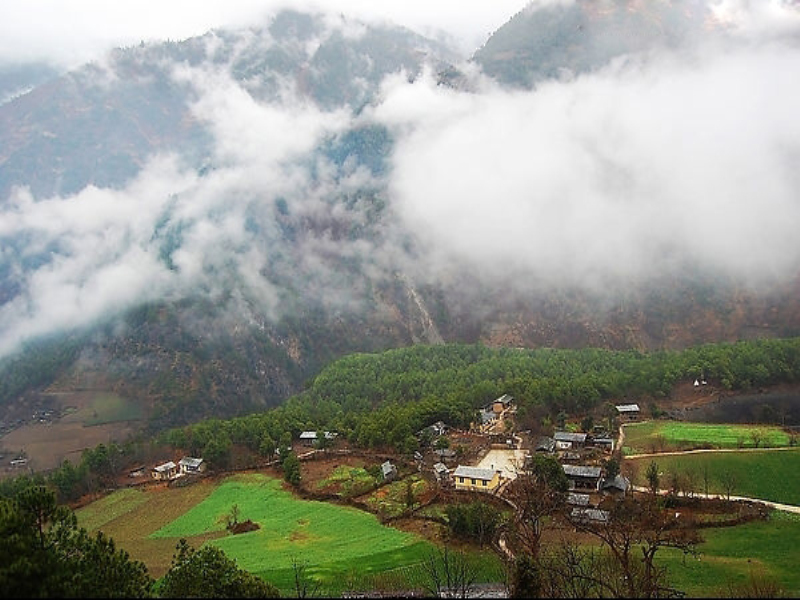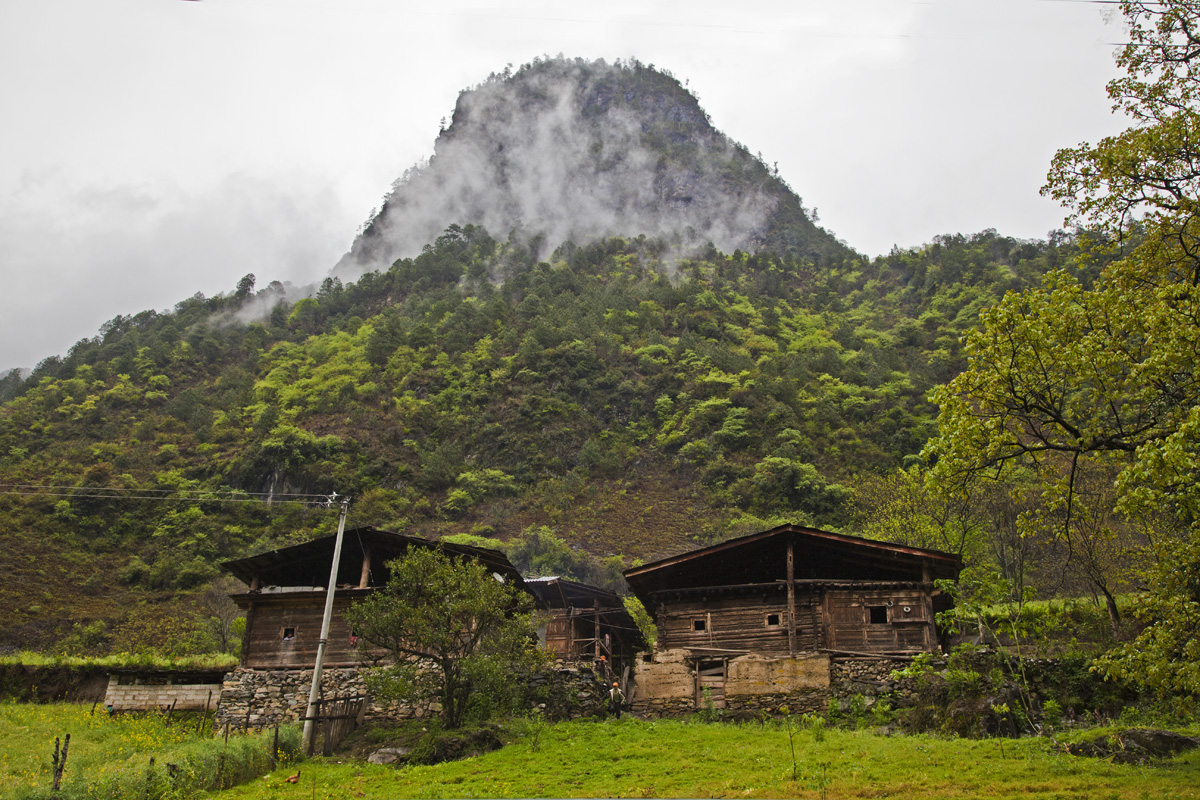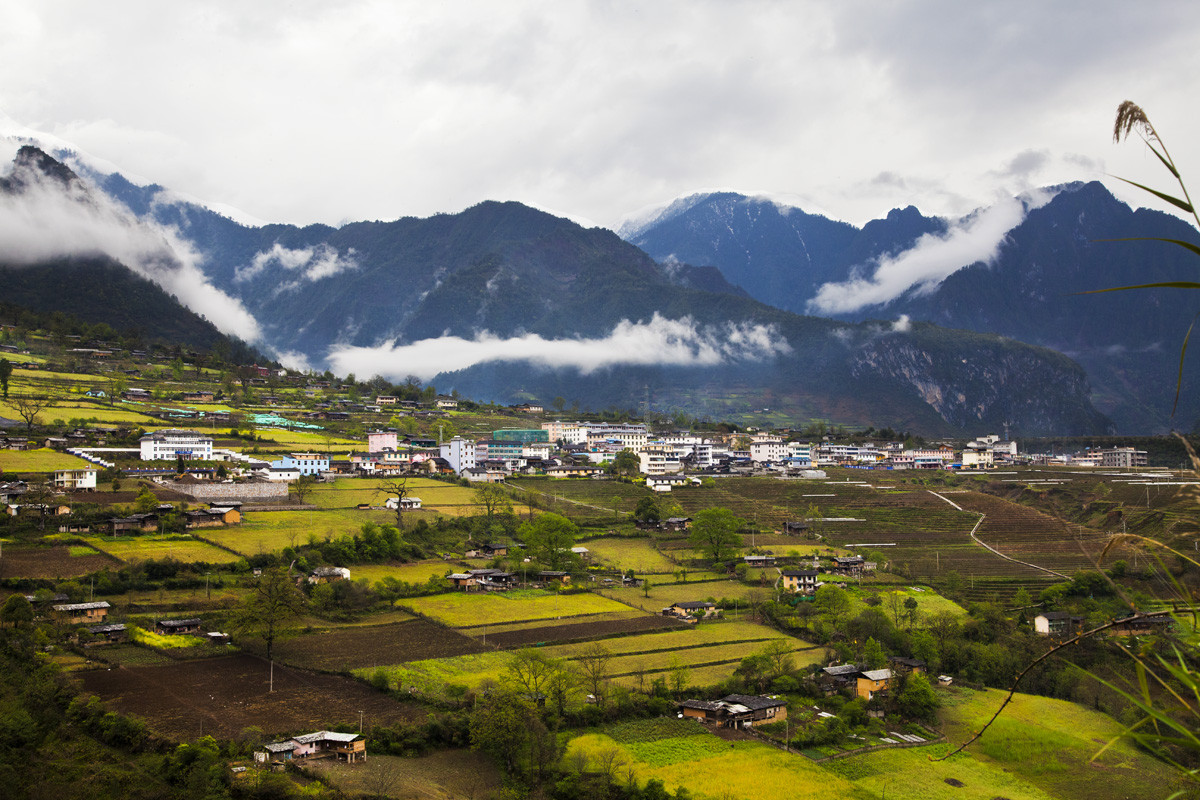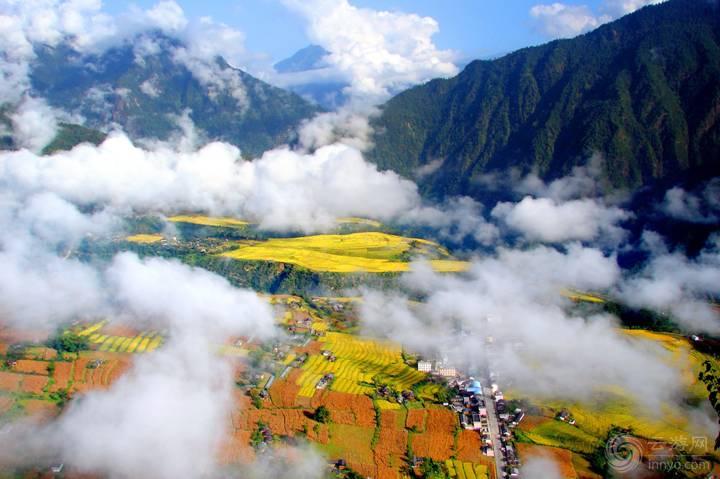Fixed Dimensions
Images with fixed dimensions
images\Nxiangce/35x35/1.jpg
-
Bingzhongluo-Travel-in-Nujiang11

-
Bingzhongluo-Travel-in-Nujiang14

-
Bingzhongluo-Travel-in-Nujiang20

-
Bingzhongluo-Travel-in-Nujiang19

Dimaluo (Chinese: 迪麻洛) is a village in Gongshan County located in a side valley of the Nu Jiang Valley in the north-eastern part of Yunnan, China.The Dimaluo River flows through the village and is a tributary of the nearby Nujiang River. Although "Dimaluo" is a Lisu word meaning "plains", the village is a small enclave of Tibetan culture in a county that also contains people of Lisu, Nu, and Dulong descent. Tibetans do not actually form a majority of the village's population, but the dominant language and the public displays of culture (music, dance, and traditional dress) are all Tibetan. As the original population of the valley was predominantly Nu, many of the families here are now mixed Nu-Tibetan descent.
History
The Catholic Tibetans, whose culture is now representative of the village, first came over the mountain passes from Deqin with Jesuit friars who were trying to make their way to Tibet. Missionaries from the Missions É trang è res de Paris first arrived in the Nujiang valley in the 1850s and 60's. They had been successful in making a number of Nu converts in the Dimaluo area. Because there was no written Nu language, instructions took place in Tibetan, giving rise to Tibetan as a language of high status among converted communities.
Geography and Climate
Dimaluo is located at an altitude of approximately 2,000 meters above sea level. It is bisected by the Dimaluo River which flows directly into the Nujiang River roughly 10 km downstream from Dimaluo village. The village sits in the Dimaluo River Valley and is surrounded by the steep valley walls. The valley walls reach a height of nearly 4,300 meters.
Dimaluo is located in a subtropical highland climate (Köppen Cwb), and, due to its high altitude, never gets very hot in summer. The rainy season is typically from June through September and receives its first snowfall in early November.
Economy
The economy of Dimaluo primarily consists of agriculture. Locals typically grow wheat or corn and raise livestock such as sheep, goats, and pigs. Recently, tourism has given a major boost to the local economy. Trekking around Dimaluo has become increasingly popular as tourists from all over China come to hike in the nearby mountains and valleys of the Nujiang region. A couple of guesthouses have started up in Dimaluo and operate with some success, especially during the spring and fall months and during national holidays.
Society and Culture
Religion
The majority of households in Dimaluo are Catholic. They go to church on Saturday evenings and Sunday mornings. Unlike most Tibetan villages, you will see no prayer flags and stupas here. Instead, there are pictures of Jesus and the Virgin Mary hanging in most households. The low benches in the church are no more than a few inches off the floor, but double as kneeling benches for praying. During Sunday morning services, readings by young boys in Mandarin and Tibetan alternate with singing and chanting as people filter in and out, crossing themselves and ducking their heads at each entrance and exit. The inside of the church is clean, stark, with a greenish hue cast from the walls. Over the exterior of the door, words in Chinese and Tibetan are interspersed with fine paintings of angels and birds. Out of around 3,200 people in all of Dimaluo (including all 12 villages), about 80% are Catholics.
Language
Many of the people in Dimaluo speak Tibetan, Nu, and Lisu. Some can speak Dulong. Most of the younger people also speak Mandarin, with just a tinge of the Gongshan accent. Most of the people in the village have at least three names: a Tibetan one, an English (Catholic) one given to them at birth, and a Chinese one they were given when they started school - as well as whatever nicknames they have acquired along the way.
Sport and Leisure
Several nights per week, traditional Tibetan dancing takes place at the center of the village on the basketball court or in private homes which have rooms big enough to accommodate a crowd. Singing is usually divided up into men's and women's rounds, and takes place along with the dance and accompaniment by the men on the traditional two-stringed instrument called the Xianzi. The large circle dances are open to everyone who wishes to join.
Along with dancing, basketball is one of the most popular recreational activities in Dimaluo. The basketball court is at the very center of the village, and serves as a gathering place - even when there are no young men trying to best each other on the court. Several of the local villages have teams and other even when their opponents are over a two-hour walk away.
Admission Fee:¥0
Attraction
Transportation:Dimaluo Village in Bingzhongluo,Nujiang
Attraction Travel Tips:
Dimaluo Village in Bingzhongluo,Nujiang

-
Summary
Lijiang-Tiger Leaping Gorge-Shangrila-Deqin-Feilaisi-Cizhong-Gongshan-Bingzhongluo-Fugong-Liuku-Tengchong
Summary
US$0
-
Summary
Lijiang-Shangrila-Feilaisi-Cizhong-Bingzhongluo-Dulongjiang-Gongshan-Fugong-Liuku-Nuodeng-Shaxi-Lijiang
Summary
US$0
-
Summary
Tengchong-Liuku-Gongshan-Bingzhongluo-Chawalong-Chayu-
Summary
US$0
-
Summary
Kunming-Dali-Shaxi-Lijiang-Tiger Leaping Gorge-Shangri-La-Deqin-Cizhong-Gongshan-Bingzhongluo-Liuku-Tengchong
Summary
US$40
-
Summary
Liuku-Fugong-Gongshan-Dulongjiang-Bingzhongluo-Liuku
Summary
US$40


